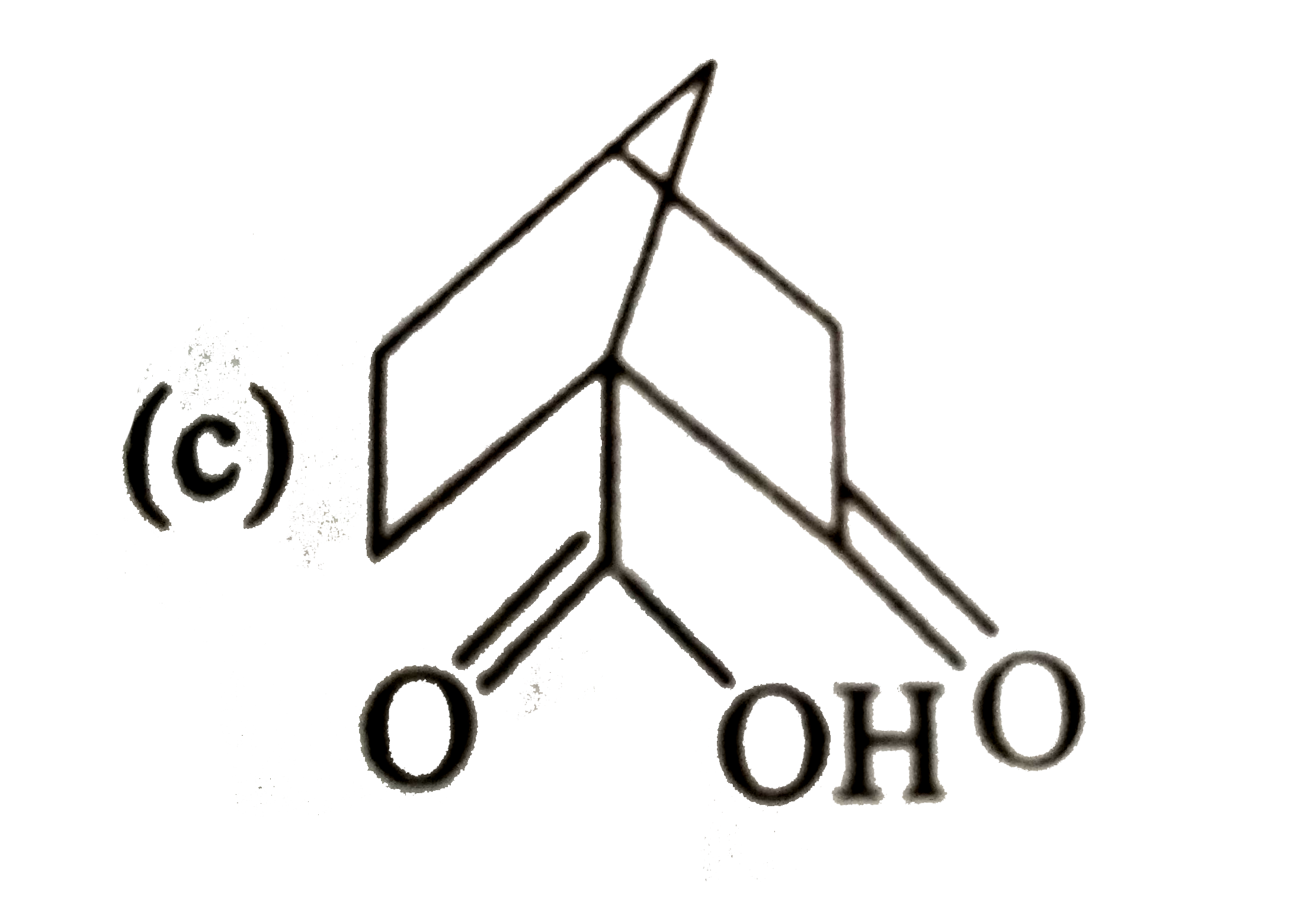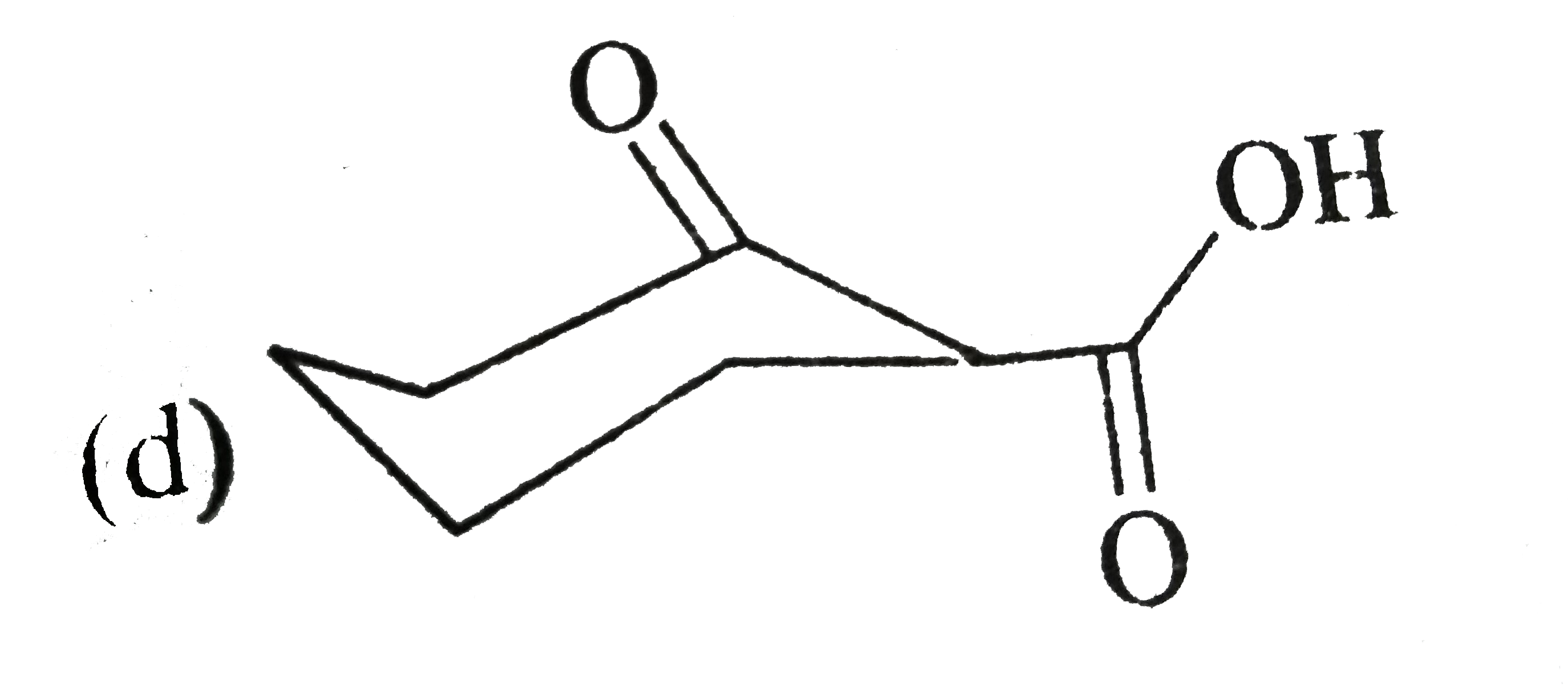The carboxylic acid that does not undergo HVZ reaction is
CH3COOH
(CH3)2COOH
CH3CH2CH2CH2COOH
(CH3)3CCOOH
The correct Answer is:D
To determine the carboxylic acid that does not undergo the HVZ (Hunsdiecker-Von Baeyer) reaction, we need to understand the requirements for this reaction to occur. The HVZ reaction involves the halogenation of the alpha carbon of a carboxylic acid that contains at least one alpha hydrogen atom.
1. Understanding the HVZ Reaction:
- The HVZ reaction is a halogenation reaction that occurs at the alpha carbon of carboxylic acids.
- For a carboxylic acid to undergo this reaction, it must have at least one alpha hydrogen atom (hydrogen atom attached to the carbon adjacent to the carboxylic acid group).
2. Identifying Alpha Hydrogen:
- The alpha carbon is the carbon atom directly adjacent to the carboxylic acid group (-COOH).
- If the alpha carbon has hydrogen atoms (alpha hydrogens), the carboxylic acid can undergo the HVZ reaction.
3. Analyzing the Given Options:
- Option 1: CH3COOH (Acetic Acid)
- This has an alpha carbon (the methyl group) with 3 alpha hydrogens. It can undergo HVZ reaction.
- Option 2: (CH3)2CHCOOH (Isobutyric Acid)
- This has an alpha carbon with 1 alpha hydrogen. It can undergo HVZ reaction.
- Option 3: CH3CH2CH2COOH (Butyric Acid)
- This has an alpha carbon with 2 alpha hydrogens. It can undergo HVZ reaction.
- Option 4: (CH3)3C-COOH (Tert-butanoic Acid)
- This has an alpha carbon (the carbon attached to the -COOH) with no alpha hydrogens (the three methyl groups do not provide any hydrogen on the alpha carbon). Therefore, it cannot undergo the HVZ reaction.
4. Conclusion:
- The carboxylic acid that does not undergo the HVZ reaction is Option 4: (CH3)3C-COOH (Tert-butanoic Acid).
Final Answer:
The carboxylic acid that does not undergo HVZ reaction is (CH3)3C-COOH (Tert-butanoic Acid).
- The HVZ reaction is a halogenation reaction that occurs at the alpha carbon of carboxylic acids.
- For a carboxylic acid to undergo this reaction, it must have at least one alpha hydrogen atom (hydrogen atom attached to the carbon adjacent to the carboxylic acid group).
- The alpha carbon is the carbon atom directly adjacent to the carboxylic acid group (-COOH).
- If the alpha carbon has hydrogen atoms (alpha hydrogens), the carboxylic acid can undergo the HVZ reaction.
- Option 1: CH3COOH (Acetic Acid)
- This has an alpha carbon (the methyl group) with 3 alpha hydrogens. It can undergo HVZ reaction.
- Option 2: (CH3)2CHCOOH (Isobutyric Acid)
- This has an alpha carbon with 1 alpha hydrogen. It can undergo HVZ reaction.
- Option 3: CH3CH2CH2COOH (Butyric Acid)
- This has an alpha carbon with 2 alpha hydrogens. It can undergo HVZ reaction.
- Option 4: (CH3)3C-COOH (Tert-butanoic Acid)
- This has an alpha carbon (the carbon attached to the -COOH) with no alpha hydrogens (the three methyl groups do not provide any hydrogen on the alpha carbon). Therefore, it cannot undergo the HVZ reaction.
- The carboxylic acid that does not undergo the HVZ reaction is Option 4: (CH3)3C-COOH (Tert-butanoic Acid).
The carboxylic acid that does not undergo HVZ reaction is (CH3)3C-COOH (Tert-butanoic Acid).
Similar Questions
Knowledge Check
- Question 1 - Select One
Which of the following β-keto carboxylic acid does not undergo decarboxylation on heating ?
A B
B C
C DNone of these
DNone of these - Question 2 - Select One
The compound that does not undergo haloform reaction is
AacetaldehydeBethanolCacetoneDpropiophenone - Question 3 - Select One or More
Which of the following carboxylic acids do not undergo decarboxylation simply on heating?
AF3C−O||C−OHBH2C=CH−O||C−OHC D
D
Account for the following:
Aromatic carboxylic acids do not undergo Friedel-Crafts reaction.View SolutionWhich of the following does not undergo HVZ reaction ?
View SolutionWhich of the following does not under go HVZ reaction ?
View SolutionAssertion (A) : Aromatic carboxylic acids do not undergo Friedel Crafts reaction.
Reason (R) : AlCl3 is Lewis acid and gets bounded to carboxyl group.View SolutionCarboxylic acids having at least one α-hydrogen react with Cl2 or Br2 in the presnence of red phosphorus to give α-halo acids. The reaction is known as H.V.Z. reaction. The HVZ reaction is limited to the formation of α-chloro acid and α-bromo acid and it is sometimes difficult to carry out the reaction. Answer the following questions :
Which of the following carboxylic acids will not give HVZ reaction ?View Solution

